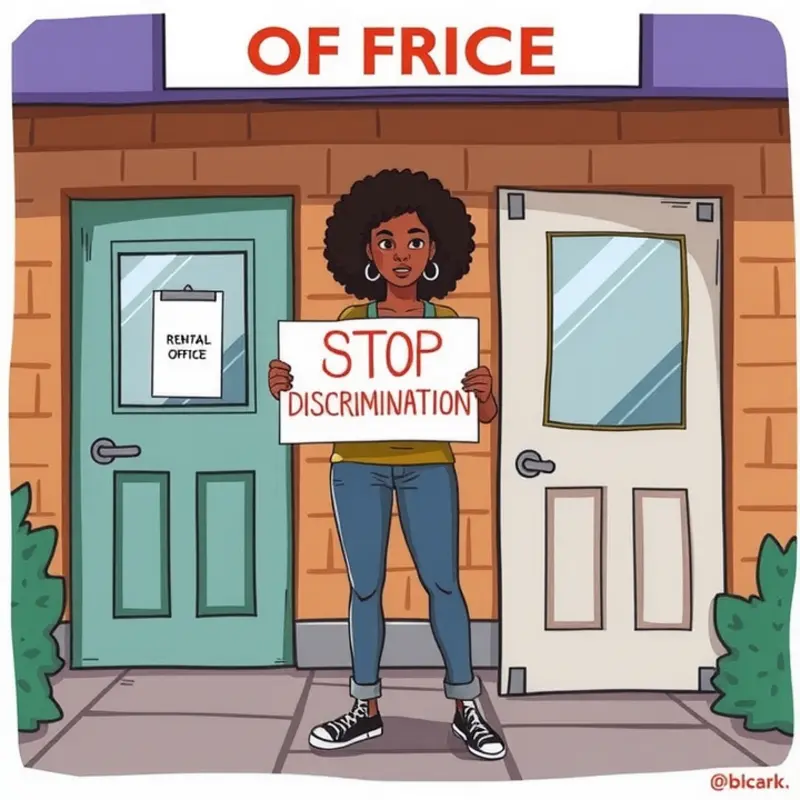In today’s dynamic housing landscape, the journey of finding a rental property can be daunting, particularly for young professionals, first-time renters, students, couples, and families. Discrimination in renting is a concerning reality that many individuals face, often leading to stress and uncertainty. Understanding your rights is crucial in combating discriminatory practices, helping you to negotiate lease agreements, and securing fair housing. Federal and state laws protect renters from discrimination based on race, color, religion, disability, sex, familial status, and national origin, among other criteria. Additionally, many local jurisdictions have expanded protections. This awareness not only equips you with the ability to identify unfair treatment but also positions you to advocate for yourself effectively. Whether you are navigating the complexities of your first lease or establishing a cozy home with your partner, being informed is your most empowering tool. Let’s explore the essential renter rights that shield you from discrimination and provide clarity as you embark on your renting journey.
Understanding Your Renter Rights

Discrimination in housing is not only unjust; it’s illegal. Understanding the legal framework that supports your rights can empower you to stand against any violation. The cornerstone of this protection is the Fair Housing Act, enacted in 1968. This federal law prohibits discrimination in renting based on race, color, national origin, religion, sex, familial status, and disability. These broad categories ensure that every individual has access to housing opportunities without facing prejudice.
Beyond the Fair Housing Act, many states have additional laws that extend protections. Some state laws include provisions for marital status, sexual orientation, gender identity, and source of income. It’s crucial to familiarize yourself with the specific laws in your state to know the full scope of your rights. Keeping abreast of local legislation ensures you have the most up-to-date protection available.
Recognizing discrimination can sometimes be challenging, as it can manifest in subtle ways. Discriminatory practices might include a landlord enforcing different terms or conditions, providing disparate services, or falsely stating that a property is unavailable. Be vigilant for red flags, such as requests for additional documentation that doesn’t apply to everyone equally or steering tenants toward specific neighborhoods or floors.
When you suspect discrimination, the first step is to document everything. Keep records of emails, text messages, and notes from any phone conversations. Documenting interactions helps establish a pattern if you need to make a formal complaint.
To assert your rights, consider reaching out to local fair housing organizations or a legal aid service specializing in housing discrimination. They can provide guidance, help draft necessary communication, and offer resources to pursue a formal complaint if needed. It’s also wise to inform the landlord of your awareness of these rights by referencing specific laws that apply to your situation.
Protection while renting extends to ensuring your current and future accommodations are safe and nondiscriminatory. If you face pushback or retaliation after asserting your rights, this too can be addressed. Federal and state laws forbid retaliatory actions from landlords, such as unjust eviction or increased rent. Maintaining a robust understanding of both your rights and the avenues to enforce them can help prevent such occurrences.
To maintain a secure renting status, regular review and update of your knowledge about tenant laws are suggested. Utilize resources like local housing authorities or online platforms specializing in tenant rights, such as legal support for rental disputes, to stay informed.
Empowering yourself with this knowledge fortifies your ability to navigate the rental market confidently and safely. Whether you’re leasing a new apartment or dealing with ongoing rental issues, being informed is your greatest tool in advocating for fair housing.
Taking Action: How to Address Discrimination

Facing discrimination when renting can be daunting, but there are practical steps you can take to assert your rights. This chapter outlines essential actions to effectively address renter discrimination.
First, meticulous documentation is crucial. Collect and organize all relevant information about the incident. Record dates, times, locations, and the individuals involved. Save any written exchanges, such as emails or text messages, and make detailed notes about verbal interactions. This record will be invaluable if you decide to file a complaint or take legal action.
Next, familiarize yourself with local resources. Many cities offer tenant advocacy groups and legal aid organizations that provide support and guidance. These resources can offer advice on your situation, help you understand relevant laws, and provide assistance in navigating the complaint process. Make use of your local fair housing office as they are equipped to handle discrimination claims and may offer mediation services.
Understanding your rights is crucial in addressing discrimination. The Fair Housing Act is a federal law that prohibits discrimination based on race, color, national origin, religion, sex, familial status, or disability. Some states and cities have additional protections, such as for gender identity or sexual orientation. Knowing these laws will help you recognize when your rights are being violated.
When you’re ready to file a formal complaint, you can do so with the U.S. Department of Housing and Urban Development (HUD) or your local fair housing agency. The HUD website offers an online complaint form, or you can submit one by mail. Be sure to include all the documented details to strengthen your case. It’s also wise to notify your landlord or property management in writing, detailing the discriminatory behavior and your intent to file a complaint.
While addressing discrimination can be emotionally taxing, ensuring that your living situation is fair and lawful is worth the effort. As you pursue your claim, consider visiting this resource for legal support in rental disputes, which could provide further assistance in complex situations.
By taking these steps, you not only fight for your own rights but also contribute to a broader effort to ensure fair housing for everyone. A firm knowledge of your rights combined with diligent action can help protect not only your current situation but also foster a positive change within your community.
Final words
Knowledge is power, especially when it comes to protecting your rights as a renter. By understanding the laws and knowing how to respond to discriminatory practices, you can take control of your rental experience. No one should feel marginalized or overlooked when seeking a place to call home. Always remember, discrimination based on protected attributes is illegal, and you hold the right to assert your voice and seek help when necessary. Be vigilant, document your experiences, and don’t hesitate to reach out for support. Stay empowered in your search for housing, and remember that fair and equal treatment is a fundamental right for every renter.









